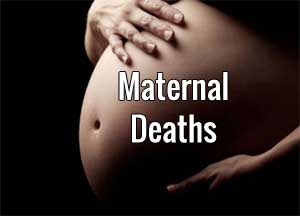- Home
- Medical news & Guidelines
- Anesthesiology
- Cardiology and CTVS
- Critical Care
- Dentistry
- Dermatology
- Diabetes and Endocrinology
- ENT
- Gastroenterology
- Medicine
- Nephrology
- Neurology
- Obstretics-Gynaecology
- Oncology
- Ophthalmology
- Orthopaedics
- Pediatrics-Neonatology
- Psychiatry
- Pulmonology
- Radiology
- Surgery
- Urology
- Laboratory Medicine
- Diet
- Nursing
- Paramedical
- Physiotherapy
- Health news
- Fact Check
- Bone Health Fact Check
- Brain Health Fact Check
- Cancer Related Fact Check
- Child Care Fact Check
- Dental and oral health fact check
- Diabetes and metabolic health fact check
- Diet and Nutrition Fact Check
- Eye and ENT Care Fact Check
- Fitness fact check
- Gut health fact check
- Heart health fact check
- Kidney health fact check
- Medical education fact check
- Men's health fact check
- Respiratory fact check
- Skin and hair care fact check
- Vaccine and Immunization fact check
- Women's health fact check
- AYUSH
- State News
- Andaman and Nicobar Islands
- Andhra Pradesh
- Arunachal Pradesh
- Assam
- Bihar
- Chandigarh
- Chattisgarh
- Dadra and Nagar Haveli
- Daman and Diu
- Delhi
- Goa
- Gujarat
- Haryana
- Himachal Pradesh
- Jammu & Kashmir
- Jharkhand
- Karnataka
- Kerala
- Ladakh
- Lakshadweep
- Madhya Pradesh
- Maharashtra
- Manipur
- Meghalaya
- Mizoram
- Nagaland
- Odisha
- Puducherry
- Punjab
- Rajasthan
- Sikkim
- Tamil Nadu
- Telangana
- Tripura
- Uttar Pradesh
- Uttrakhand
- West Bengal
- Medical Education
- Industry
4 medical institutes identified to tackle maternal deaths

New Delhi: The health ministry has identified four medical institutes which will act as regional centres and train people in tracking maternal deaths and taking steps to prevent them.
The institutes--MGIMS Wardha, Institute of OBGYN, Chennai, KGMU Lucknow and Guwahati Medical College, Assam-- were identified during a national workshop on Strengthening Maternal Death Surveillance Response (MDSR) and Maternal Near Miss (MNM) Review held recently.
Development partners like the WHO, the UNICEF will also be involved in various activities of implementation of guidelines.
Sensitisation and orientation of participants towards this thought was the central theme of the workshop, an official statement said.
The new MDSR guidelines are built on the ones released earlier with salient features such as paradigm shift to response from review, no name, no blame policy, introduction of confidential review, use of ICD10 classification for causes of maternal death and use of data for planning of local action, it said.
At the workshop, all participants expressed renewed commitment towards implementing and strengthening the MDSR and the MNM in the country.
It was attended by the representatives of the health ministry, the National Health Systems Resource Centre (NHSRC) along with participants from 33 states and 45 medical colleges, development partners like WHO, UNICEF and civil society organisations.


